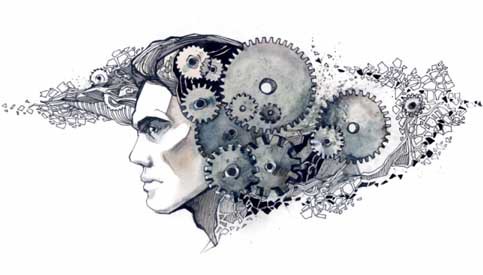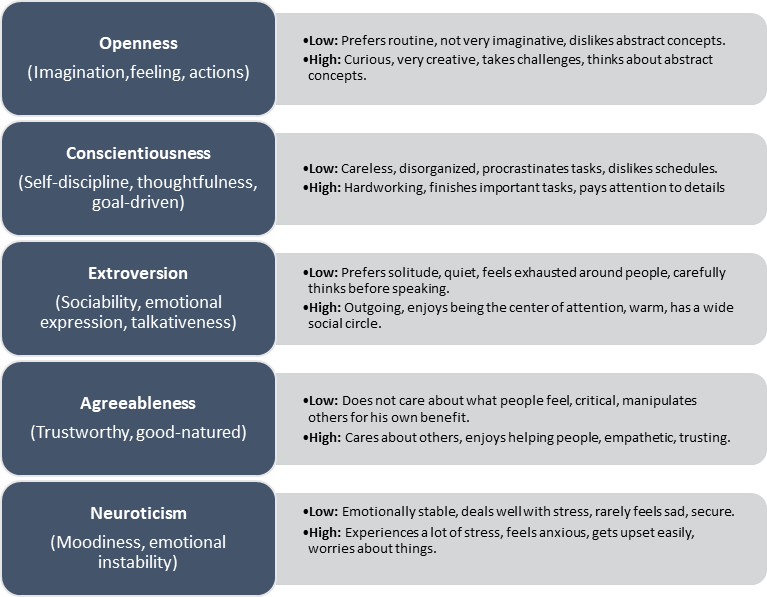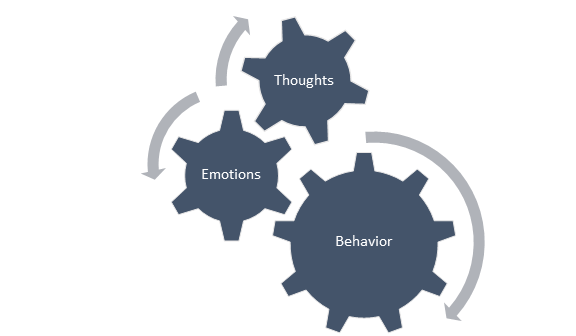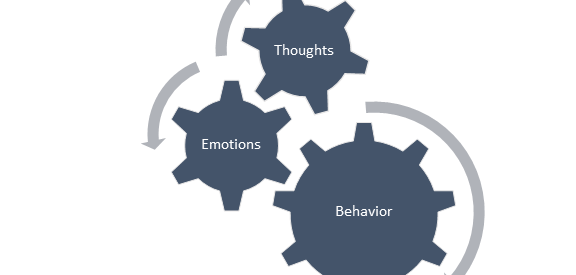
Contemporary psychology is a broad field within psychology that utilizes modern techniques in research and studies; it is influenced by old perspectives in psychology. The APA (American Psychological Association) is the largest and professional organization of psychologist in the United States. There is a wide variety of specialties and about 56 divisions within the APA. The APS (Association for Psychological science) was founded in 1988 to advance the scientific orientation of psychology. Its founding resulted from the disagreements between members of the scientific and clinical branches within the APA. These are the major subdivisions and subfields in modern-day psychology:
Biopsychology and Evolutionary Psychology: Biopsychology is a field study of relationships between human biology and human behavior. As a way of illustration, a biological psychologist tries to understand how the nervous system affects behaviors by combining research strategies of both psychologists and physiologists. In other words, The interests of this research includes the following: sensory and motor system, sleep, drug use and abuse, reproductive behavior, neurodevelopment, the plasticity of the nervous system and biological correlates of psychological disorders study. Furthermore, a biopsychology research needs psychologists, biologists, medical professionals and chemists; biological psychology aims to detect direct causes of behavior based on human physiology, while evolutionary psychology purpose is to detect the ultimate ones. According to psychologists, human behavior is affected by genetics as well as by its surroundings including the physical and social environment. Nevertheless, the theory of evolution is not fully validated due to the lack of information that affirms the genetical aspect of human behavior. Evolutionary psychologists still realize that our behavior has been influenced by environmental and social conditions far back in human history, but the drawback is that is hard to know what these conditions were. All they can do are predictions related to memory, mate choice, friendship, and many other areas. The researchers succeeded in finding correspondence between observations and expectations. As an example, an observation study of 37 cultures, that concerns future mate preference of both men and women, has been made;consequently, women valued earning potential factor while reproductive factors for men.
Sensory and Perception: Sensation and perception are two different interrelated processes. They work together to make a sense of signs and stimulus we find in our environment. In sensation, a sensory receptor (Eye, ear, nose..) produces nerve impulse that travels to the brain, which interprets that impulse as an image, a sound or an odor. Perception happens when the brain translates the information received and relates them to our experiences and memories to give them meaning. The sensory information is the same, but the perception differs from one person to another. Our interaction with the world is not as simple as it may seem, it is influenced by previous experiences and cultural background, that is the focus of the study.
Cognitive Psychology: The study of cognitive psychology focus is on mental processes and how they affect behaviors. Cognitive psychologist interests include attention, cognition, thoughts, memories and all mental processes. Many concepts are involved in studies such as thinking and intelligence, lifespan development, social psychology, and therapy. There is a diversity in the approaches used within the field.
Developmental Psychology: Psychologists in this field focus on physical maturation, cognitive skills, moral reasoning, and social behavior to understand a person development across his lifespan and how that influences his behavior. A research made by Jean Piaget (1896?1908) shows the difference between a child and an adult in achieving objects permanence. Whereas a very young child does not consider the existence of an object when it is hidden, however, the adult does. Jean Piaget theory confirms the changes in cognitive abilities in line with the age. The changes that happen during the transition from childhood to adulthood as well as those that occur later in life, can reflect population demographics of developed nations where people live a long life as more and more.
Personality Psychology: Personality psychologists have an interest in how behaviors and thoughts of individuals make them unique and special from each other. They attempt to understand how personality is built and to determine behavior through the study of personality traits. According to Freud, personality is the outcome of a conscious and unconscious mind conflict. The Five Factor model or the ?Big Five? as they are called is the way psychologists measure the variations in personality seen across individuals. They are impacted by many factors such as maturation, environment, and biology. Each particular one of these five factors (OCEAN) has both a low and a high score, they are divided as follows:

Social Psychology: Social psychologists focus on determining how living between people changes attitude, and how we explain our behavior versus how we explain others?. According to social psychologists, humans are naturally sociable necessitating living together, which develops their personality through cultural and community influences.
Industrial-Organizational Psychology: Industrial-organizational psychology concerns organization and management in business life. Businesses and entrepreneurs need it to create a better workplace environment, a better quality by motivating employees.
Health Psychology: Health psychologists try to help individuals achieve better health through biological and psychological factors that affect it. They also focus on the patient?s reaction to illness. Professionals of the field are not interested in the actual disease as much as they are in the person who has it.
Sport and Exercise Psychology: Studies in the field are about the effects of physical activities on mental and emotional well-being. Sports psychologists are interested in helping athletes use psychological principles to achieve optimal mental health and to improve performance, and in understanding how participation in sport and physical activities influences an individual?s psychological development throughout his lifespan.
Clinical Psychology: Clinical psychology is a very important subfield being the center of interest of most psychologists. A clinical psychologist job is to diagnose and treat mental, emotional, and behavioral disorders and other problems related to psychology. Clinical psychology theories are based on behavioral issues and psychoanalysis whereas counseling psychology theories on humanistic and client-centered traditions. Counseling psychologists focus on individuals who are considered psychologically healthy.

The above diagram represents the effect of thoughts, feelings, and behavior on each other.
Forensic Psychology: Forensic psychologists focus on legal matters and justice contexts such as child custody, violence risk assessment, civil law, eyewitness testimony, and other issues. Part of their job is acting as experts? witnesses to give their experience-based opinion and sometimes as criminal profilers. A forensic psychologist must have a good understanding of the law and provide information in the context of the legal system. He may be also used in the jury selection process.


